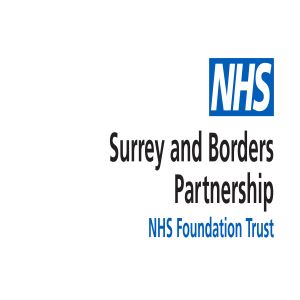Drug & Alcohol Rehab in Surrey

How Does Rehab Work?
The process of rehab helps individuals regain their balance and their overall quality of life. Rehab involves patient-focused therapy in which behaviours involving drug and alcohol use are targeted, coping strategies introduced, and therapy services provided. Individuals learn how to prevent relapse and have the option of entering an inpatient or an outpatient programme. residential rehab requires that individuals stay at a chosen facility or recovery centre 24/7. Outpatient rehab programmes have clients maintain their daily lifestyles while partaking in counselling sessions and group work.
What Happens During Residential Rehab?
Rehab is the first step towards recovery and sober living. It can be challenging to work on quitting addictive behaviours on your own but with the support of professional intervention, an addiction-free life can be achieved. You may fear the unknown; however, a breakdown of the process can help put your mind at rest.
Prior to entering treatment, every individual will be assessed by a medical professional. The aim is to create a treatment plan suited to individual health and wellness needs. This is particularly important for those with a history of addiction and comorbid mental conditions including depression, anxiety or bipolar disorder.
The next part of treatment is detox. Detox assists with the removal of toxic substances within the body. It may be important that it is medically supervised to manage withdrawal symptoms. This is especially true for benzodiazepine and alcohol dependency. The last step of the programme is the treatment itself (therapy). Individuals can then choose inpatient or outpatient treatment.
Rehab includes meeting with a counsellor for private & group sessions, participation in skill-building activities as with an inpatient or residential rehab, or group meetings that are common with outpatient 12 Step programmes. We look at the different phases of rehab in more detail.
1. Assessment

Before treatment can be delivered, a medical assessment is conducted. This involves an in-depth look at individual medical history, drug or alcohol use, and the presence of mental health conditions. Clients can be accommodated with a medical assessment by phone. An admissions team will be responsible for the telephone assessment to decide on the best form of treatment. Along with determining a treatment plan, the admissions team or medical professional will have accurate information to facilitate the detox process.
When you wish to pursue treatment for drug and alcohol addiction, a medical assessment should be completed. Assessments will guide therapy because it provides staff with the information, they need to develop a tailored treatment plan or advise on the appropriate intervention.
2. Detox

Detox is a process in which substances such as drugs and alcohol are safely removed from the body. It is coordinated by professionals in a residential facility.
Detox is necessary where substance misuse and addiction are present. It should be managed by experienced and knowledgeable medical staff to limit uncomfortable and severe withdrawal symptoms. For those who go through withdrawal, there is a greater risk of relapsing if not managed within a rehab clinic. In a residential setting, qualified staff may offer medication to minimise difficult withdrawal. The approach for therapy, once detox is finished, is determined by the assessment.
3. Therapy

Therapy involves skill-building, coping strategies, and the exploration of the reasons behind addictive behaviours. It can be delivered within an inpatient or an outpatient setting, each offering its benefit and potential drawbacks.
Step by Step Process for Residential Rehab
To understand your medical and mental health history.
Arrange a suitable date to begin your journey to recovery.
Begin the managed withdrawal process from substances including alcohol.
To understand the root cause of addiction and how to overcome it.
Aftercare is provided to help manage the risk of relapse.
To help heal the wounds that addictive behaviour has caused others.
Find your Nearest Rehab Centre near Surrey
The nearest rehab centre is LifeWorks, Addiction Treatment and Eating Disorder Help in Surrey
Address: LifeWorks, Addiction Treatment and Eating Disorder Help in Surrey, The Grange, High St, Old Woking, Woking GU22 8LB
Call 0333 4444 432 to discuss your alcohol or drug rehab requirements and any other questions you may have about the process of residential rehab.
Outpatient Addiction Services in Surrey
From inpatient to outpatient services, the right treatment for substance addiction will depend upon the assessment and budget to determine the appropriate treatment for you. For those who are interested in the flexibility and the affordability of outpatient addiction services, we look closer at what it entails compared with an inpatient treatment programme.
When you are accepted into an outpatient service, you will be expected to meet with a therapist, support counsellor, or group leader once or twice a week. Rather than stay away from home, you can continue to attend work and care for your family while you receive treatment for dependence.
Private Outpatient programmes include therapy with counselling sessions provided by a therapist/counsellor. Sessions can last up to 90 minutes. Free alternatives do exist via one of the many reputable charities in the UK (Turning Point), but it does not provide the same individualised care that private services provide.
NHS Free addiction services in Surrey
The Benefits of Outpatient Services
Private Outpatient programmes will involve individualised care plans to address the specific problems and difficulties that are leading to addiction. Outpatient assistance is commonly sought by individuals who have family commitments or those who need to work full-time. Outpatient programmes are more affordable than inpatient treatment.
The Challenges of Outpatient Services
While outpatient services play an important role in accessible addiction treatment, it is also linked with a higher incidence of relapse. While free outpatient services do exist through the NHS or UK based charities, waiting times are to be expected and treatment tends to be more generic.

How Much Does Rehab Services Cost in Surrey?
Residential rehab can cost £1500 – £4000 per week. Understanding how much other addiction treatment services cost requires a closer look at the services below. Residential rehab is the most expensive of the two; however, there are alternative options and providers including charities offering free addiction treatment services for qualifying individuals.
The NHS and charities such as Turning Point provide free rehab services for those having difficulties with substance and alcohol addiction. It is worth noting that Turning Point requires a self-referral to access treatment. You will also find free support groups provided by Alcoholics Anonymous, Cocaine Anonymous, and Narcotics Anonymous very important for long-term recovery from addiction.
Support Groups in Surrey

Addlestone - Acceptance is the Answer

Ladies Lunchtime Big Book Study
The Pros and Cons of Seeking Treatment in Your Local Area
Pros
1. You are familiar with the area which may provide a layer of comfort/safety.
2. Family or friends can easily travel to visit or are close by.
3. You could save on the costs of travelling long distances for addiction treatment, or free services may only be offered in your area of residency.
Cons
1. A local environment means access to drug dealers or other triggers. This is more of an issue if you decide upon outpatient programmes.
2. Failing to consider locations outside your local area could equate to a missed opportunities for more valuable and rewarding programmes.
3. Addiction treatment programmes nearby do not always offer the best standard of treatment.
The CQC website will provide information and ratings on a service in the event you are unsure regarding a particular service.

